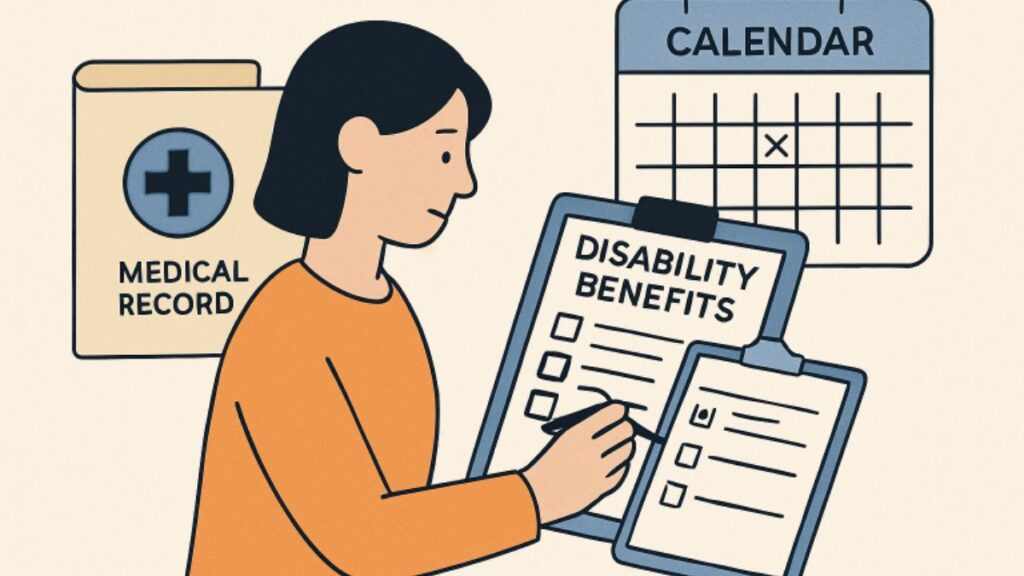Qualifying for disability benefits under the Employee Retirement Income Security Act (ERISA) is crucial for individuals facing medical conditions that prevent them from working. This federal law is designed to protect employees by setting clear standards for disability plans sponsored by private employers. Navigating the requirements, application process, and potential pitfalls can be challenging, but understanding the proper steps is key. If you need legal guidance or support, consider consulting with ERISA lawyers for specialized advice and help with your claim.
Many individuals encounter issues such as unclear eligibility requirements and difficulties submitting supporting medical documentation. Knowing your rights under ERISA and how to assert them makes a significant difference in the claims process. That’s why it’s essential to be proactive, well-informed, and to keep thorough records at every stage of your application. Whether you are dealing with a complex health condition or simply seeking clarity, being prepared will make the process less daunting. There are legal nuances associated with each employer-sponsored plan, so it is essential to understand your specific policy and how recent legal changes may affect your rights.
Understanding ERISA and Disability Benefits
Enacted in 1974, ERISA is a cornerstone law for regulating group benefit plans, including those for disability insurance, offered by private employers. The law exists to protect employees by mandating transparency regarding plan details, enforcing fiduciary duties on plan managers, and ensuring benefit claims and appeals are handled fairly. Key ERISA requirements include providing plan participants with written explanations of their benefits, funding information, and the right to dispute denied claims through an appeals process. ERISA plans differ from state-based disability coverage; they generally have unique definitions of disability and specific claim procedures. Understanding these differences is an essential first step for any claimant.
Eligibility Criteria for ERISA Disability Benefits
Eligibility for ERISA-governed disability benefits relies on fulfilling conditions specified by your employer’s plan. While criteria vary, most plans share several core requirements:
- Employment in a position that qualifies you for group disability coverage, usually with full-time status.
- Satisfying the plan’s definition of disability, which can center on being unable to perform your “own occupation” or “any occupation.” The distinction affects your ability to qualify and the duration of your benefits.
- Completing a mandatory waiting period, often ranging from 90 to 180 days, before benefits begin.
It’s essential to consult your plan’s summary description for details, as requirements and definitions can vary widely.
The Application Process
Successfully applying for ERISA disability benefits requires attention to detail and careful documentation. Here are the main steps:
- Gather Medical Evidence: Secure complete and updated medical records—request statements from healthcare providers detailing specific limitations and the medical necessity for leave.
- Complete the Application: Fill out the forms provided by your plan administrator, answering all questions fully and accurately.
- Submit the Application: Send your completed paperwork to the plan administrator, keeping copies of every submission. Adhere to stated deadlines.
- Await and Review the Decision: Plan administrators typically make a decision within 45 days, with allowed extensions. Review any correspondence carefully.
Timeliness is crucial—missing deadlines can jeopardize your claim.
If your claim is denied, carefully read the denial letter to understand the reasons and prepare for the appeal process. Keep thorough records of all communications with the plan administrator to support your case. Seeking guidance from an attorney experienced in ERISA claims can improve your chances of a successful outcome.
Common Challenges and How to Overcome Them
Securing ERISA disability benefits can often be a challenging process, fraught with hurdles that may result in delays or denials. Common challenges include:
- Insufficient Medical Evidence: Weak or incomplete records are a top reason for denials. Maintain consistent communication with your physicians to ensure all relevant details are documented.
- Missed Deadlines: Appeals and initial claims are subject to strict timelines. Use a calendar or reminder system to stay organized.
- Denials and Appeals: If your claim is denied, request a written explanation and gather additional supporting documentation for an appeal. Many successful claims are approved only after a thorough appeal.
Being proactive and detail-oriented drastically improves your chance of success.
Recent Legal Developments Affecting ERISA Disability Claims
Recent cases have brought significant clarity and new standards for ERISA disability claims. For example, a federal appellate court allowed a claimant to continue his lawsuit because the insurer failed to make a timely decision within ERISA’s 45-day guideline. These legal precedents emphasize the importance of holding plan administrators accountable for processing claims in a timely and fair manner.
Learn more about this and its implications by reading this article from BenefitsPRO.
Tips for a Successful Claim
- Coordinate closely with doctors to ensure that your functional limitations are clearly described and well-supported by evidence.
- Maintain organized records of all correspondence and decisions regarding your claim and appeals.
- Consider getting assistance from a professional who specializes in ERISA disability claims—they can help you avoid common mistakes and strengthen your chances of approval.
Conclusion
Qualifying for disability benefits under ERISA is a detailed and sometimes challenging process. Success relies on understanding your plan, keeping excellent records, supplying robust medical documentation, and managing all deadlines with care. Staying informed about legal changes and maintaining open communication with your providers and plan administrators will help you navigate the process more effectively and increase your chances of receiving the support you need.






